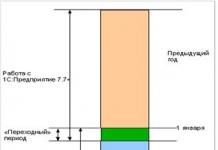During the last century, the rhythm of human life has become noticeably faster. This acceleration affected almost everything, including wars. In some military conflicts, the parties managed to sort things out in just a couple of days. However, the most short war took place in history long before the invention of tanks or aviation
45 minutes

The Anglo-Zanzibar War went down in history as the shortest war (it also entered the Guinness Book of Records). This clash took place on August 27, 1896 between England and the Sultanate of Zanzibar. The reason for the war was the fact that after the death of Sultan Hamad bin Tuvaini, who collaborated with Great Britain, his nephew Khalid bin Bargash, who was more inclined towards the Germans, came to power. The British demanded that Khalid bin Barghash renounce his claims to power, but he refused them and began preparing the defense of the Sultan's palace. At 09:00 on August 27, the British began shelling the palace. After 45 minutes, bin Bargash asked for asylum at the German consulate.
In the photo, English sailors after the capture of the Sultan's palace. Zanzibar. 1896

2 days
The invasion of Goa is also called the liberation of Goa from Portuguese colonial rule. The reason for this war was the refusal of the Portuguese dictator António de Oliveira Salazar to return Goa to the Indians. On the night of December 17-18, 1961, Indian troops entered Goa. The Portuguese did not show them any resistance, violating the order to defend Goa to the last. On December 19, the Portuguese laid down their arms and the island was declared Indian territory.


3 days
The US invasion of Grenada, the famous Operation Urgent Fury. In October 1983, an armed coup took place on the island of Grenada in the Caribbean, and left-wing radicals came to power. On the morning of October 25, 1983, the United States and the Caribbean invaded Grenada. The pretext for the invasion was to ensure the safety of American citizens living on the island. Already October 27 fighting were completed, and on October 28 the last American hostages were released. During the operation, the pro-communist government of Grenada was removed.


4 days
Libyan-Egyptian war. In July 1977, Egypt accused Libya of taking prisoners on Egyptian soil, to which Libya responded with the same accusations. On July 20, the first battles began, bombing attacks were carried out on military targets from both sides. The war was short, and ended on July 25, when, thanks to the intervention of the President of Algeria, peace was concluded.

5 days
Agasher war. This border conflict between the African countries of Burkina Faso and Mali, which occurred in December 1985, is also called the "Christmas War". The cause of the conflict was the rich natural gas and oil Agasher strip - a territory in the north-east of Burkina Faso. On December 25, the day of Catholic Christmas, the Malian side knocked out the forces of Burkina Faso from several villages. On December 30, after the intervention of the Organization of African Unity, the fighting ended.

6 days
The Six Day War is perhaps the most famous short war in the world. On May 22, 1967, Egypt began blockade of the Strait of Tiran, closing Israel's only access to the Red Sea, and the troops of Egypt, Syria, Jordan and other Arab countries began to move up to Israel's borders. On June 5, 1967, the Israeli government decided to launch a preemptive strike. After a series of battles, the Israeli army defeated the air forces of Egypt, Syria and Jordan and launched an offensive. On June 8, the Israelis completely captured the Sinai. On June 9, the UN achieved a ceasefire and on June 10 hostilities were finally halted.


7 days
The Suez War, also called the Sinai War. main reason The war was the nationalization of the Suez Canal by Egypt, as a result of which the financial interests of Great Britain and France were affected. On October 29, 1957, Israel launched an attack on Egyptian positions in the Sinai Peninsula. On October 31, Great Britain and France, allied to him, opposed Egypt at sea and attacked from the air. By November 5, the Allies took control of the Suez Canal, but under pressure from the USSR and the United States, they had to withdraw their troops.
“Israeli soldiers are preparing for battle.”

US invasion of the Dominican Republic. In April 1965, a military coup took place in the Dominican Republic, and chaos began. On April 25, American ships headed for the territory of the Dominican Republic. The pretext for the operation was to protect the American citizens who were in the country and to prevent the establishment of communist elements in the country. On April 28, the successful intervention of American troops began, and on April 30, a truce was concluded between the warring parties. The landing of US military units was completed on 4 May.

The war between the United Kingdom and the Sultanate of Zanzibar took place on August 27, 1896 and entered the annals of history. This conflict between the two countries is the shortest war that has been recorded by historians. The article will tell about this military conflict, which claimed many lives, despite its short duration. The reader will also find out how long the shortest war in the world lasted.
Zanzibar - African colony
Zanzibar is an island country in Indian Ocean off the coast of Tanganyika. At the present moment, the state is part of Tanzania.
The main island, Unguja (or was under the nominal control of the Sultans of Oman since 1698, after the Portuguese settlers who settled there in 1499 were expelled. Sultan Majid bin Said declared the island independent from Oman in 1858, independence was recognized by Britain, as was secession of the sultanate from Oman Barhash bin Said, the second sultan and father of Sultan Khalid, was forced under British pressure and the threat of a blockade to abolish the slave trade in June 1873. But the slave trade still took place, as it brought a large income to the treasury.Subsequent sultans settled in the city Zanzibar, where a palace complex was built on the seashore.By 1896, it consisted of the Beit al-Hukm palace itself, a huge harem, as well as Beit al-Ajaib, or "House of Miracles" - a ceremonial palace, called the first building in East Africa, supplied with electricity.The complex was mainly built from local timber.All three main buildings were adjacent to each other. about one line and connected by wooden bridges.
Cause of military conflict
The immediate cause of the war was the death of the pro-British Sultan Hamad bin Tuwaini on August 25, 1896, and the subsequent ascension to the throne of Sultan Khalid bin Barghash. The British authorities wanted to see Hamud bin Mohammed as the leader of this African country, who was a more profitable person for the British authorities and the royal court. In accordance with the treaty signed in 1886, the condition for the inauguration of the sultanate was to obtain the permission of the British consul, Khalid did not comply with this requirement. The British considered this act casus belli, that is, a reason for declaring war, and sent an ultimatum to Khalid, demanding that he order his troops to leave the palace. In response, Khalid summoned his palace guards and barricaded himself in the palace.
Side forces
The ultimatum expired at 09:00 ET on 27 August. By this point, the British had amassed three war cruisers, two 150 marines and sailors, and 900 soldiers of Zanzibar origin in the port area. The Royal Navy contingent was commanded by Rear Admiral Harry Rawson and their Zanzibar forces were commanded by Brigadier General Lloyd Mathews of the Zanzibar Army (who was also Zanzibar's First Minister). With opposite side about 2800 soldiers defended the Sultan's palace. Mostly it was the civilian population, but among the defenders were the palace guards of the Sultan, and several hundred of his servants and slaves. The Sultan's defenders had several artillery pieces and machine guns, which were placed in front of the palace.
Negotiations between the Sultan and the Consul
At 08:00 on the morning of August 27, after Khalid sent an envoy asking for negotiations, the consul replied that no military action would be taken against the Sultan if he agreed to the terms of the ultimatum. However, the Sultan did not accept the conditions of the British, believing that they would not open fire. At 08:55, without receiving any further news from the palace, Admiral Rawson gave the signal aboard the cruiser St. George to prepare for action. Thus began the shortest war in history, which resulted in many casualties.
The course of the military operation
At exactly 09:00, General Lloyd Matthews ordered the British ships to open fire. The shelling of the Sultan's palace began at 09:02. Three ships of Her Majesty - "Raccoon", "Sparrow", "Thrush" - simultaneously began to shell the palace. The first shot of the Drozd immediately destroyed the Arab 12-pounder.

The warship also sank two steam boats from which the Zanzibaris fired back with rifles. Some of the fighting also took place on land: Khalid's men fired on Lord Raik's soldiers as they approached the palace, but this was of little effect.

Sultan's Escape
The palace caught fire and all the Zanzibar artillery was put out of action. Three thousand defenders, servants and slaves were in the main palace, built of wood. Among them were many victims who died and suffered from explosive shells. Despite initial reports that the sultan had been captured and was to be exiled to India, Khalid was able to escape from the palace. A Reuters correspondent reported that the sultan "ran away after the first shot with his entourage, and left his slaves and associates to continue the fighting."

sea battle
At 09:05, the obsolete yacht Glasgow fired at the British cruiser St. George using seven 9-pounder guns and a Gatling gun, which was a gift from Queen Victoria to the Sultan. In response, the British Navy attacked the Glasgow yacht, which was the only one in service with the Sultan. The Sultan's yacht was sunk along with two small boats. The crew of the Glasgow raised the British flag in sign of their surrender and the entire crew was rescued by British sailors.

The result of the shortest war
Most attacks by the Zanzibar troops against the pro-British forces were ineffective. The operation ended at 09:40 with a complete victory for the British forces. Thus, it lasted no longer than 38 minutes.

By then, the palace and the adjoining harem had burned down, the Sultan's artillery was completely out of action, and the Zanzibar flag had been shot down. The British took control of both the city and the palace, and by noon Hamud bin Mohammed, an Arab by birth, was declared as sultan, with considerably limited powers. It was an ideal candidate for the British crown. The main result of the shortest war was a violent change of power. British ships and crews fired about 500 shells and 4,100 machine gun rounds.

Although most of Zanzibar's residents joined the British, the Indian quarter of the city was plagued by looting and about twenty residents died in the chaos. To restore order, 150 British Sikh troops were transferred from Mombasa to patrol the streets. Sailors from the cruisers St. George and Philomel left their ships to form a fire brigade to put out the fire that had spread from the palace to the neighboring customs sheds.
Victims and consequences
About 500 Zanzibar men and women were killed or wounded during the shortest war, 38 minutes. Most of the people died from the fire that engulfed the palace. It is not known how many of these casualties were military. For Zanzibar, this was a colossal loss. The shortest war in history lasted only thirty-eight minutes, but claimed many lives. On the British side, there was only one badly wounded officer aboard the Drozd, who later recovered.
Duration of the conflict
Expert historians are still debating how long the shortest war in history lasted. Some experts claim that the conflict lasted thirty-eight minutes, others are of the view that the war lasted a little more than fifty minutes. However, most historians adhere to the classical version of the duration of the conflict, stating that it began at 09:02 am and ended at 09:40 East African time. This military clash was included in the Guinness Book of Records due to its transience. By the way, another short war is considered the Portuguese-Indian war, the bone of contention for which was the island of Goa. It only lasted 2 days. On the night of October 17-18, Indian troops attacked the island. The Portuguese military failed to provide adequate resistance and surrendered on October 19, and Goa passed into the possession of India. Also, the military operation "Danube" lasted 2 days. On August 21, 1968, the troops of the allied countries of the Warsaw Pact entered Czechoslovakia.
The fate of the fugitive Sultan Khalid
Sultan Khalid, Captain Saleh and about forty of his followers, after escaping from the palace, took refuge in the German consulate. They were guarded by ten armed German sailors and marines, while Matthews posted men outside to arrest the Sultan and his associates if they attempted to leave the consulate. Despite requests for extradition, the German consul refused to hand Khalid over to the British, as the German extradition treaty with Britain specifically excluded political prisoners.
Instead, the German consul promised to send Khalid to East Africa so that he "does not set foot on the ground of Zanzibar". At 10:00 on October 2, a ship of the German fleet arrived at the port. At high tide, one of the ships sailed to the garden gate of the consulate, and Khalid from the consular base boarded directly on board the German warship and was consequently released from arrest. Then he was transported to Dar es Salaam in German East Africa. Khalid was captured by British forces in 1916 during the East African Campaign in World War I and exiled to the Seychelles and Saint Helena before being allowed to return to East Africa. The British punished Khalid's supporters by making them pay reparations to cover the cost of the shells fired against them and for the damage caused by the looting, which amounted to 300,000 rupees.
New leadership of Zanzibar
Sultan Hamud was loyal to the British, for this reason he was appointed as a figurehead. Zanzibar finally lost any independence, completely subject to the British Crown. The British were in full control of all spheres public life this African state, the country lost its independence. A few months after the war, Hamud abolished slavery in all its forms. But the emancipation of the slaves was rather slow. Within ten years, only 17,293 slaves were freed, and real amount slaves numbered over 60,000 in 1891.
The war greatly changed the ruined palace complex. The harem, the lighthouse and the palace were destroyed by shelling. The palace plot became a garden, and a new palace was erected on the site of the harem. One of the rooms of the palace complex remained almost intact and later became the main secretariat of the British authorities.
The shortest war in world history lasted only 38 minutes. It was fought between England and Zanzibar. This fact is registered in the Guinness Book of Records. The hostilities were the result of a confrontation between British troops and the Sultanate of Zanzibar (East Africa).
Causes of the conflict
The precedent arose in 1896, when in a state with exotic name The ruler of Zanzibar, the Sultan, has died. At that time, the Sultanate was under the influence of the British, who colonized the coast of East Africa.
Germany, also wishing to gain control of this territory, bought part of the possessions inside the mainland. Then Zanzibar was involved in the trade in spices and other valuable goods, which is why the Europeans sought to control these lands.

Departed to better world the Sultan collaborated with the British, but his relative Khalid ibn Bargash (cousin) supported the German administration. Therefore, after the death of the Sultan, Khalid tried to take power into his own hands. He seized the throne and gathered an army of nearly three thousand men to defend the palace.
The course of the war
The British demanded that the new sultan give up power. Khalid, meanwhile, began to prepare for defense. The British authorities concentrated their armed forces in the harbor in front of the Sultan's palace. They put up a squadron of warships in the amount of five pieces against a single Zanzibar yacht.
Needless to say, the British warships were well equipped, while the Zanzibar yacht could only be called a warship with a stretch.

At nine o'clock in the morning, in accordance with the terms of the ultimatum, the British opened fire on the palace. They were opposed by one bronze cannon, two small guns and several machine guns. The British easily defeated the improvised army of the Sultan and brought the guns of the Africans to complete incapacity.
The palace was reduced to rubble, and Khalid fled in disgrace along with the few survivors. The shelling was carried out for 38 minutes and ended after one of the shots shot down the Zanzibar flag. After that, the British admiral landed troops and occupied the palace.
Consequences of the short war
Khalid ibn Barghash asked for asylum at the German embassy. He was evacuated by the Germans to Tanzania, where he remained for the next 20 years. Then he was captured by the British and died a few years later.
In British history, this incident is considered almost comical, due to its short duration. However, for the Zanzibaris, who lost about five hundred people in this war, history has a tragic meaning.
British colonists in late XIX centuries began to seize African lands inhabited by black natives, who were distinguished by a very low level of development. But the locals were not going to give up - in 1896, when agents of the British South Africa Company tried to annex the territory of modern Zimbabwe, the natives decided to resist the opponents. Thus began the First Chimurenga - this term refers to all clashes between races in this territory (there were three in total).
The first Chimurenga is the shortest war in human history, at least known. Despite the active resistance and attitude of the African inhabitants, the war quickly ended with a clear and crushing victory for the British. The military power of one of the most powerful powers in the world and a poor backward African tribe cannot even be compared: as a result, the war lasted 38 minutes. The English army escaped casualties, and among the Zanzibar rebels there were 570 dead. This fact was later recorded in the Guinness World Records.
The longest war
The famous Hundred Years War is considered the longest in history. It lasted not a hundred years, but more - from 1337 to 1453, but with interruptions. To be more precise, this is a chain of several conflicts between which a lasting peace was not established, so they stretched into a long war.
The Hundred Years' War was fought between England and France: both sides were assisted by allies. The first conflict arose in 1337 and is known as the Edwardian War: King Edward III, grandson of the French ruler Philip the Handsome, decided to claim the French throne. The confrontation lasted until 1360, and nine years later a new war broke out - the Carolingian. At the beginning of the 15th century, the Hundred Years' War continued with the Lancaster conflict and the fourth, final stage, ending in 1453.
An exhausting confrontation led to the fact that by the middle of the 15th century only one third of the population of France remained. And England lost its possessions on the European continent - she had only Calais. Civil strife began in the royal court, which led to anarchy. There was almost nothing left of the treasury: all the money went to support the war.
But on military affairs, the war had big influence: in one century there were many new types of weapons, standing armies appeared, began to develop firearms.
The change of dominant states is a frequent phenomenon in modern history. Over the past few centuries, the palm of the world championship has repeatedly passed from one leader to another.
History of the last superpowers
In the 19th century, Britain was the undisputed leader of the world. But since the beginning of the 20th century, the role has passed to the United States. After the war, the world became bipolar, when it could become a serious military and political counterweight to the United States. Soviet Union.
With the collapse of the USSR, the role of the dominant state was again occupied by the United States for a while. But the United States did not last long as sole leaders. By the beginning of the 21st century, the European Union was able to become a full-fledged economic and political association, equal to, and in many ways superior to, the potential of the United States.
Potential world leaders
But other shadow leaders did not waste time during this period. Over the past 20-30 years, Japan, which has the third budget in the world, has strengthened its potential. Russia, having begun the fight against corruption and accelerated the process of modernization of the military complex, claims to return to the leading positions in the world in the next 50 years. Brazil and India with their colossal human resource may also in the near future aim at the role of the world. Do not discount the Arab countries, which in last years not only enrich themselves at the expense of oil, but also skillfully invest what they earn in the development of their states.
Another potential leader that is often overlooked is Turkey. This country already has the experience of world domination when Ottoman Empire several centuries almost half of the world. Now the Turks are wisely investing both in new technologies and the economic development of their country, and are actively developing the military-industrial complex.
The next world leader
It is too late to deny the fact that the next world leader is China. For the past few decades, China has been the fastest growing. During the current global financial crisis, it was this rapidly developing and overcrowded area that first showed signs of recovery for the entire economy.
Thirty years ago, one billion people in China lived below the poverty line. And by 2020, experts predict that China's share of global GDP will be 23 percent, while the US will account for only 18 percent.
Over the past thirty years, China has managed to increase its economic potential fifteenfold. And twenty times to increase its turnover.
The pace of China's development is simply amazing. In recent years, the Chinese have built 60,000 kilometers of freeways, second only to the United States in their total length. There is no doubt that soon China will overtake the States in this indicator. The speed of development of the automotive industry is an unattainable value for all world states. If a few years ago, Chinese cars were frankly mocked because of their Low quality, then in 2011, China became the world's largest manufacturer and consumer of cars, overtaking the same United States in this indicator.
Since 2012, the Celestial Empire has become the world leader in the supply of products information technologies leaving behind the US and the EU.
In the next few decades, one should not expect a slowdown in the growth of the economic, military and scientific potential of the Celestial Empire. Therefore, there is very little time left before China becomes the most powerful state in the world.
Related videos


















